Perfect Days
#WeblogPoMo2024Last week, I watched Perfect Days, a German/Japanese film directed Wim Wenders and starring Koji Yakusho. The film takes place in Tokyo, Japan and follows Hirayama, a toilet cleaner as he goes about his day.
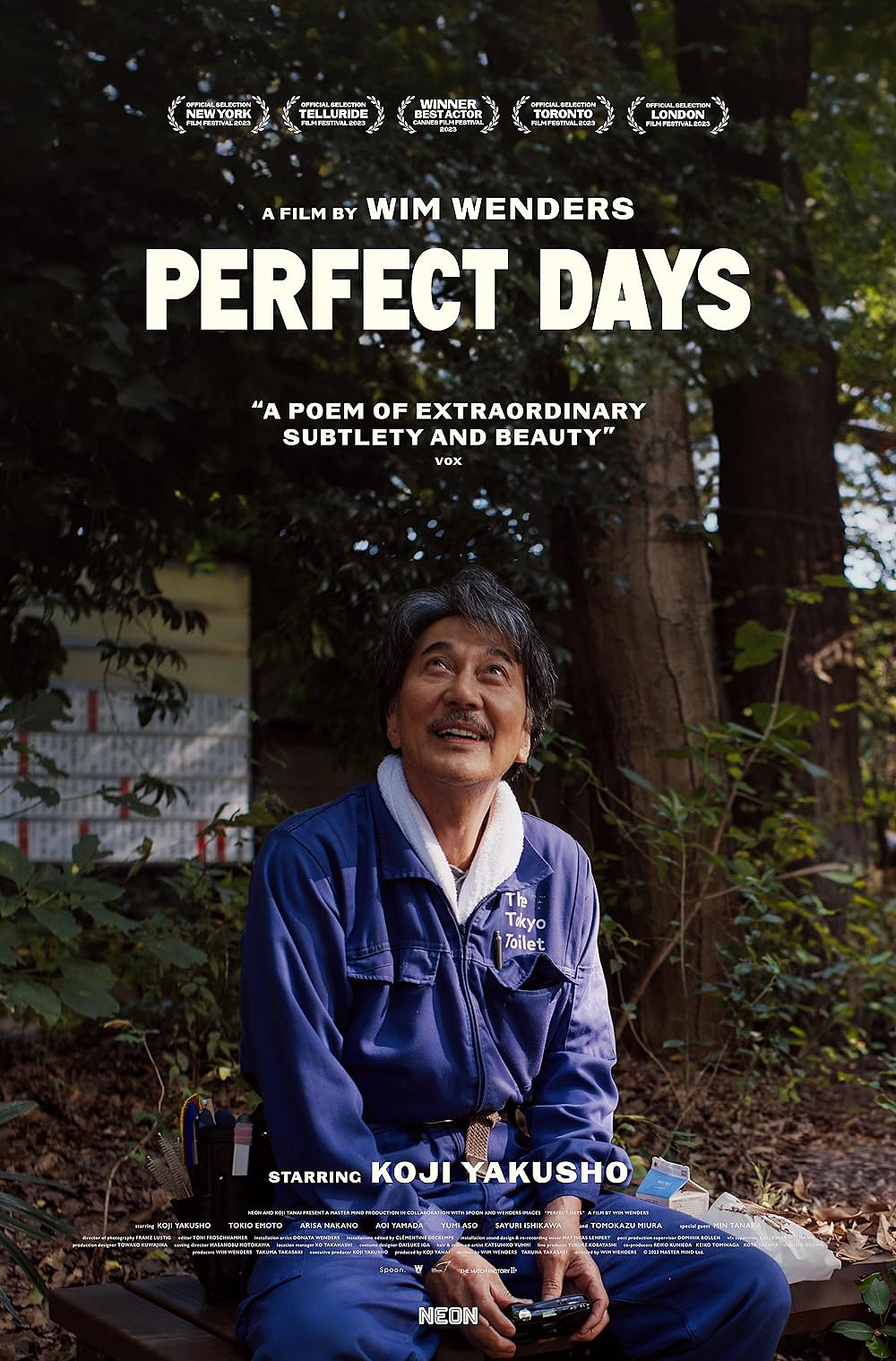
Sometimes you watch a film that sticks with you, and Perfect Days has stuck with me. So much so, I needed to write about it a bit and just explore my thoughts. I am going to do my best to avoid spoilers, but there really isn't much to spoil. The film is about as mundane plot wise, as the daily life of our protagonist. However, there is plenty to explore in between the quiet serenity of each scene.
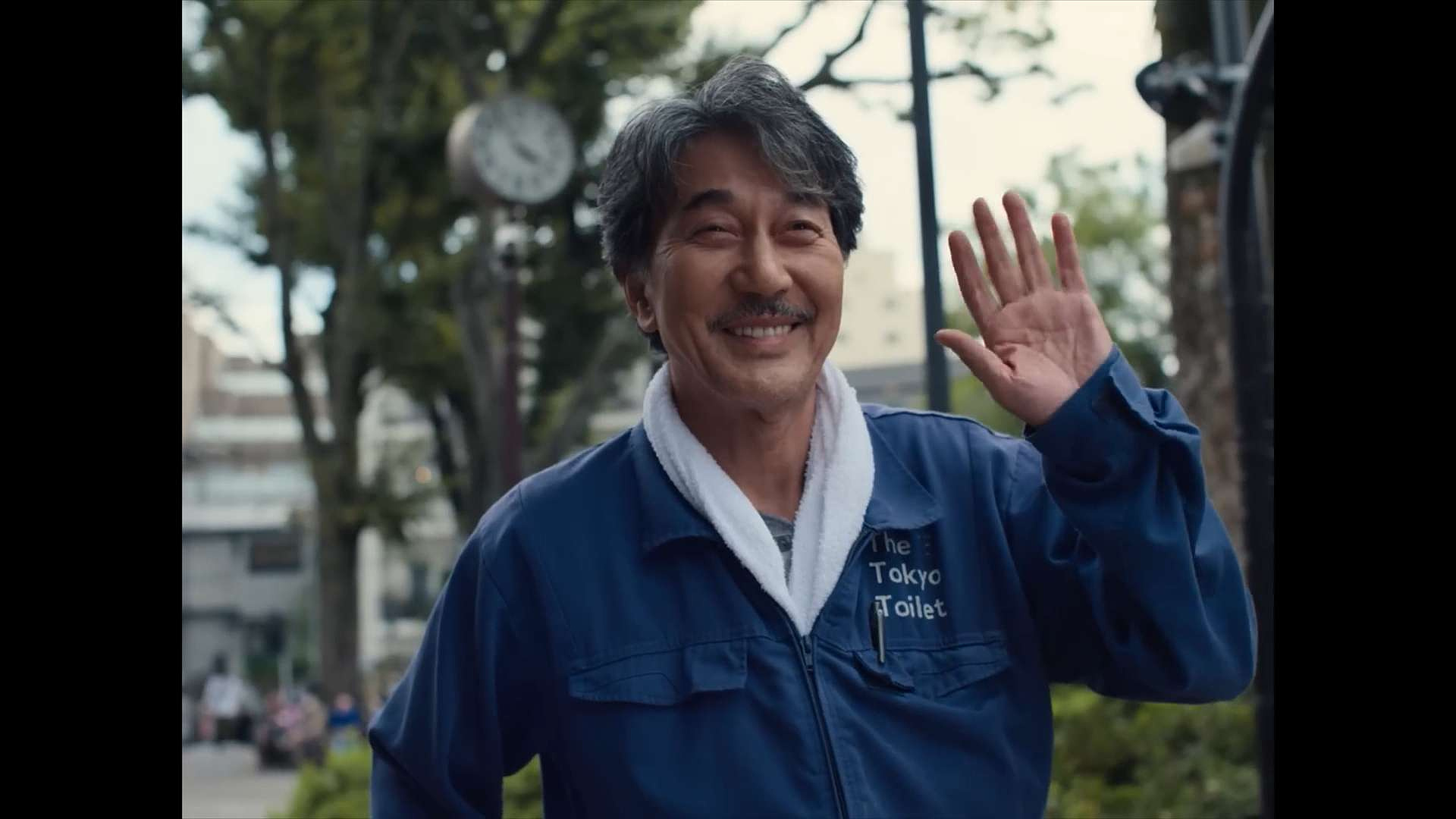
Perfect Days almost feels like a documentary that follows one man as he lives his life. Hirayama lives in a small apartment. He gets up, brushes his teeth, grabs a can of coffee from the vending machine and goes to work. He cleans public toilets, and although you can see that everyone around him (his co-worker, people using the toilet, etc.) look down on the job, it doesn't seem to bother him. He smiles and does a wonderful job making sure that each toilet is spotless. He clearly takes pride in his work.
There is a certain peace that is found within Hirayama's routine. He visits the same restaurants, bathhouse, and seems to revel in his day-to-day life. You can see it in his face when he walks out the door in the morning and looks up at the sky and smiles. He ends each day by reading a book he's picked up from the bargain bin of a used bookstore. It's a simple life, although you can see a little sadness in Hirayama.
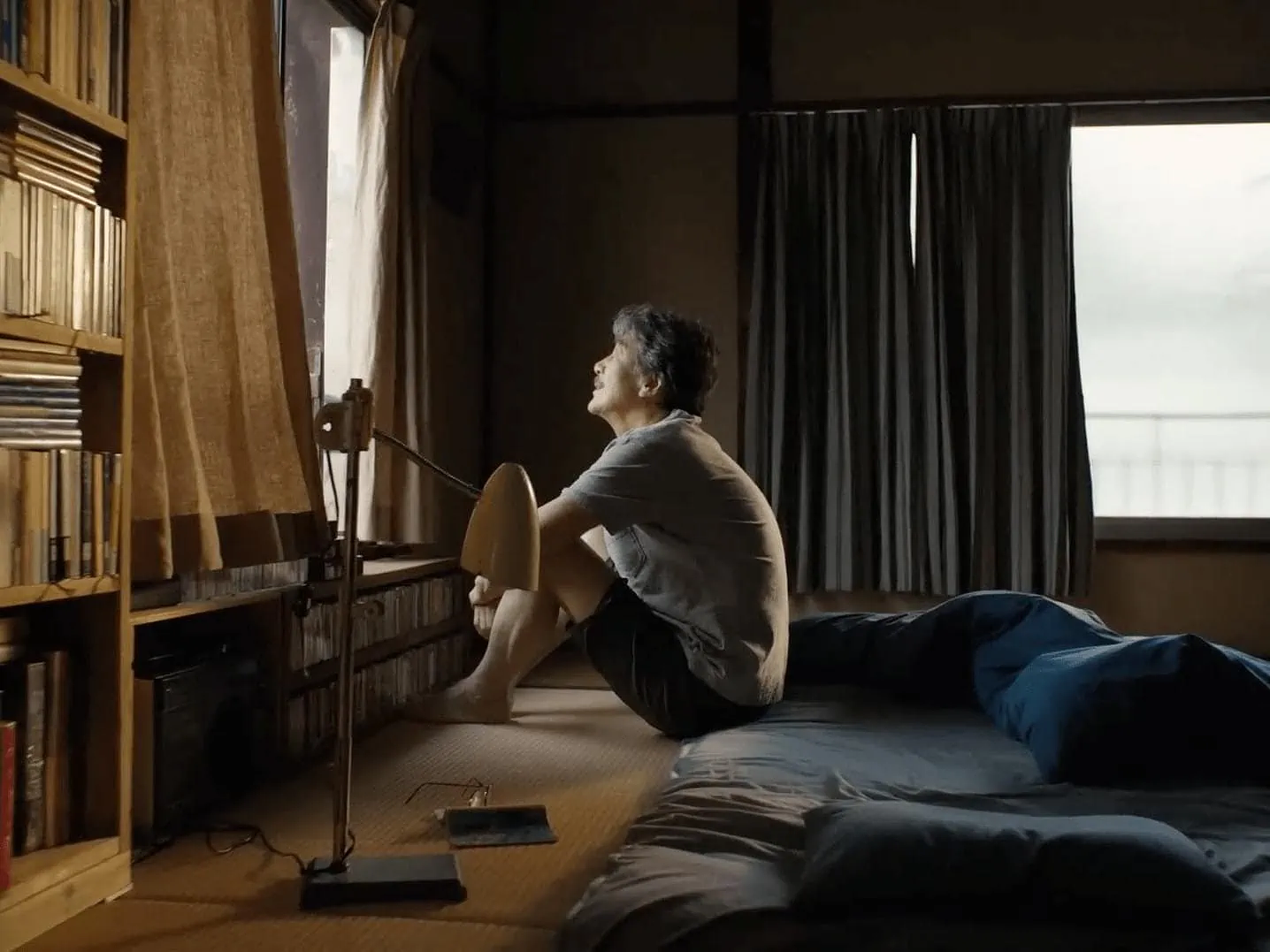
The story never explains the sadness or how Hirayama found his lifestyle, but it’s hinted that he didn't always live like this and something bad has happened in his life. When asked by his niece why he and his sister no longer speak, he says:
The world is made up of many worlds; some are connected, and some are not.
I never really thought of that way. Hirayama had made his own
world where he found comfort. It was devoid of a smart phone. He still
carried around a cheap 35 mm camera he took pictures of his favorite
tree every day at lunch. He didn't own a TV or a computer. He had no
idea what Spotify was, and he still listened to cassettes. His lifestyle
brought judgement by the folks around him, but it was hard to fault
Hirayama for living the way he did. He seems so content at times, it
makes you wish you could live the same way.
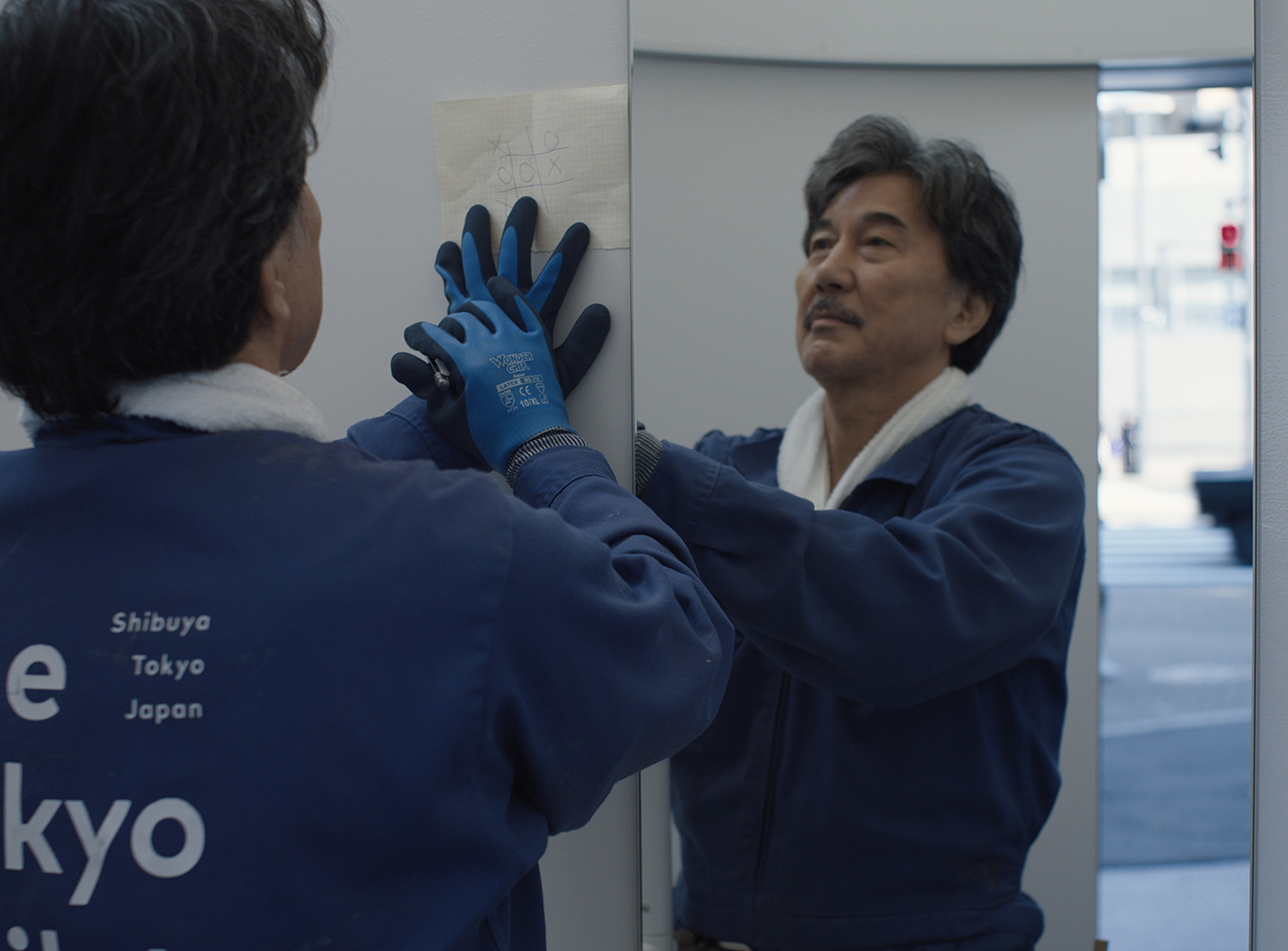
What fascinates me about this piece of media is how it approaches the topic of minimalism. Unlike the internet and the documentaries, I've watched, Hirayama's minimalism isn't pristine. It doesn't look like it was crafted by Apple. Instead, it's practical and you can tell he appreciates what he owns. We realized that when we see the cluttered bookshelf full of paperbacks or the long shelves full of cassette tapes. His sink area doesn't feature the finest faucets from Delta and instead looks like something haphazardly thrown together. I guess, unlike what you may see online, his life isn't ultra tidy or clean and because of that it feels authentic.
I mentioned before that Hirayama has a sort of sadness to him, and I appreciate this attribute to his character's personality. Minimalists sometimes claim that by embracing their ethos it fixes everything, but this isn't true about any ethos. There are always emotions and problems that occur. Hirayama seems both content and sad at times, but I could say the same about myself. It's that authenticity that made this movie stick with me over the past few days.
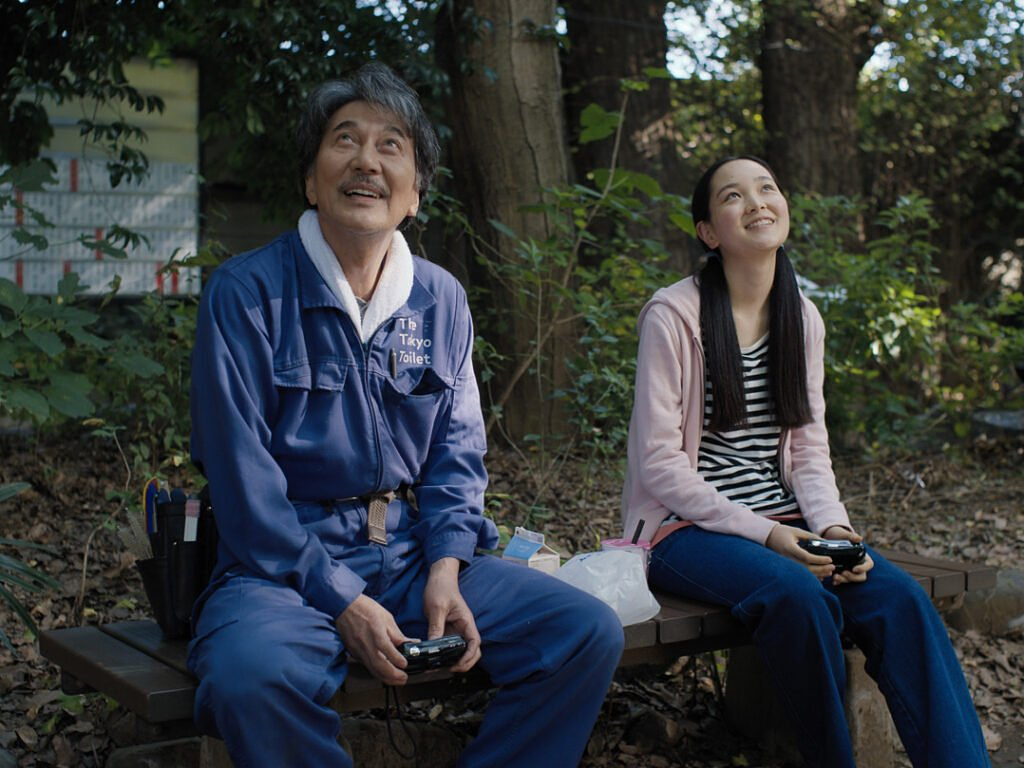
The film itself will not be for everyone. There is not much dialogue and instead we see Hirayama going throughout his day, in the same way that we go about ours. He gets up, goes to work, eats dinner, reads, goes to bed, and repeats. But in the silence, there are some incredible scenes, beautiful filmed and with an unexpected 70's American soundtrack.
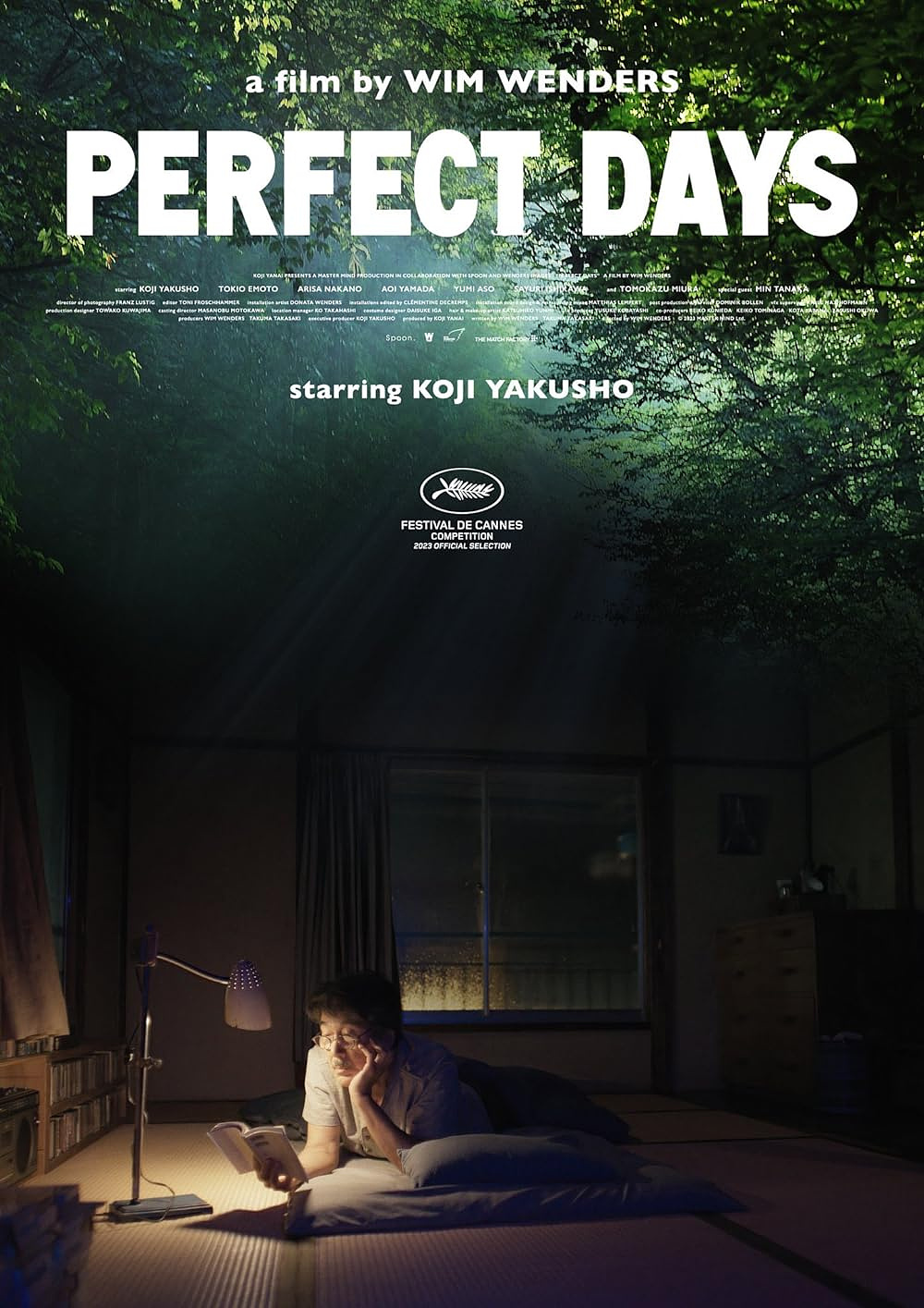
Another great quote that emerged from the film also occurred while talking to his niece. She asked him about going to the beach and he said next time. She asked when that would be, and he responded with:
Next time is next time. Now is now.
It's clear that Hirayama lives in the moment. It's how he gets
through the day. This is something I've been working on for years and
trying to get better at. I realize more and more that contentment and
peace is found in your routine. Establishing parameters and living
within them is what generates happiness/contentment, at least for me.
So, seeing Hirayama find a path that worked for him, his own little
world, only encourages me to want to try a little harder to craft my own
little world where I can wake up each morning look up to the sky and
smile.
